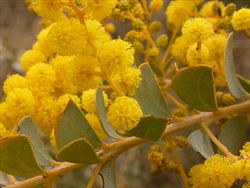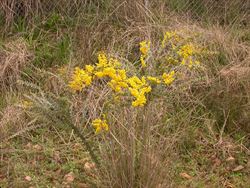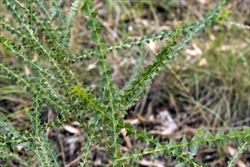Click on images to enlarge

Acacia pravissima F.Muell., Black Mountain, Canberra, ACT. Photo by: Donald Hobern

Acacia pravissima F.Muell., Black Mountain, Canberra, ACT. Photo by: Donald Hobern.

Acacia pravissima F.Muell., Black Mountain, Canberra, ACT. Photo by: Donald Hobern

By Bidgee (Own work) [CC-BY-SA-3.0 (http://creativecommons.org/licenses/by-sa/3.0)], via Wikimedia Commons
Scientific Name
Acacia pravissima F. Muell. ex Benth.
Synonyms
Acacia pravissima F. Muell.Racosperma pravissimum (Benth.) Pedley
Family
Fabaceae: sub-family Mimosoideae (New South Wales)Leguminosae (South Australia)Mimosaceae (Queensland, the ACT, Victoria, Tasmania, Western Australia and the Northern Territory)
Common Names
alpine wattle, oven wattle, ovens wattle, Tumut wattle, wedge leaf wattle, wedge-leaf wattle, wedge-leaved wattle
Origin
Native to the alpine and sub-alpine regions of south-eastern Australia (i.e. south-eastern New South Wales, the ACT and eastern Victoria).
Naturalised Distribution
Naturalised beyond its native range in Victoria. Possibly also naturalised beyond its native range in New South Wales and the ACT.
Notes
Wedge-leaved wattle (Acacia pravissima) grows naturally near streams or in moist sheltered sites, in open eucalypt forests and woodlands, on the ranges south from near Tumut in New South Wales, and the Cotter River in the ACT, to the Strathbogie Range and Macalister Range in north-eastern Victoria. It has escaped cultivation as a garden ornamental and is regarded as an environmental weed in those parts of Victoria that are beyond its native range.
This species appears on some local and regional environmental weed lists in the central and southern parts of Victoria (e.g. in the Goulburn Broken Catchment, on the Mornington Peninsula and in Banyule City) and is seen as a potential threat to one or more vegetation formations in this state. It has also been recorded growing in conservation areas in southern Victoria (e.g. in bushland at Riddells Creek in the Macedon Ranges Shire and along the boundary of Morwell National Park).
There are also reports that it is naturalised in the upper Blue Mountains, west of Sydney, and in Canberra Nature Park in the ACT.

